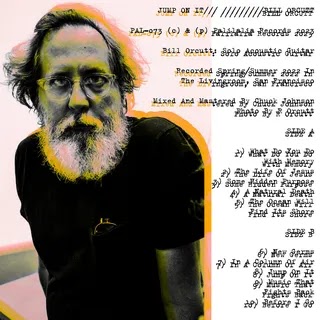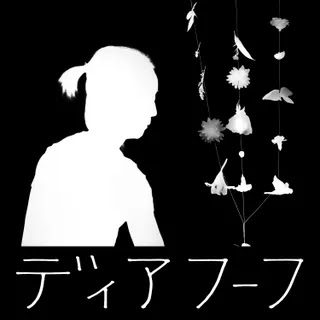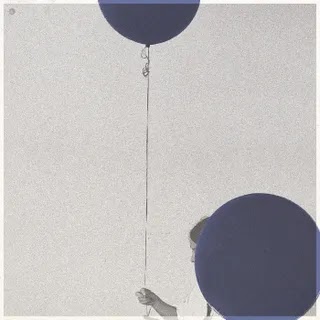Circuit Des Yeux’s Haley Fohr recasts her alter ego as a long-haul trucker against ambitious, synthetic soundscapes that evoke the near-spiritual loneliness of the solo traveler.
On Haley Fohr’s second album under the moniker Jackie Lynn, she lays out her rules for travelers. “Travel light, share your finds,” she starts out on “Traveler’s Code of Conduct,” doling out seemingly familiar instructions before the track slowly disintegrates, turning sinister and surreal. A low, electronic thrum engulfs Fohr’s voice as she begins firing off more complex, difficult thoughts—“I’m thinking of past lives/I’m thinking of having a kid”—the kind that might occur to you after long hours alone on the road. As with Fohr’s best songwriting, like her 2018 record as Circuit Des Yeux, what first appears simple or familiar soon reveals strange and surprising depths.
When we first met Jackie Lynn, she was a drug kingpin telling an elaborate tale of revenge and redemption. Jacqueline, however, depicts the everyday inner life of a long-haul truck driver. It’s a shift in character, retaining the dramatic presence of Jackie Lynn while re-casting the specifics. By adding the element of long-distance travel, Fohr merges Jackie’s story more closely with her own: The album was conceived largely during time on the road as a touring musician. In her original iteration, Jackie Lynn came with a lot of baggage, but on Jacqueline, she’s stripped back to an archetype. Fohr describes her as “more of a costume than a figure... her wig looks like a wig. It doesn’t look like real hair. I want people to recognize that that’s someone dressed up. All you need is dirty wigs to find a new you.”
Cut through with the scent of gasoline and hairspray, Jacqueline revels in the gritty glamour of its central concept. With the assistance of Cooper Crain, Rob Frye, and Dan Quinlivan (aka Bitchin Bajas), the ambitious, synthetic soundscapes have the feeling of trying on every gown in the closet. The record opens with the propulsive drum pattern and hyperactive synth melodies of “Casino Queen,” mimicking the forward motion of wheels on tarmac. “Shugar Water” is a bluesy, rambunctious bar sing-a-long, and “Odessa”—a seven-minute psychedelic jam—is a journey within itself. On the latter, Fohr carves out wide open spaces between her chopped-up vocal lines, using acidic sci-fi synths and urgent drums to evoke the near-spiritual loneliness of the solo traveler.
Yet the isolation of Jackie Lynn is felt most deeply in the album’s meditative moments. On some of these more minimalist songs, like “Dream St.” and “Lenexa,” the structure can feel so slight and spacious that there’s little to grab onto. But on the album closer “Control,” a masterful slow release, Fohr evokes a very different side of her titular character. Here, the casino queen has mellowed and turned inwards, hands steady on the wheel as she drives into the sunset.
Once again, Jackie’s experience seems to dovetail with Fohr’s own: Between extreme bursts of extroversion, the traveling performer must also find peace with her own thoughts. Fohr’s songwriting has always envisioned a vast emotional landscape, and in just a short time with Jackie Lynn/Jacqueline, she shows us a broad sweep of this driver’s isolated life. On the twinkling, sighing “Lenexa,” Fohr repeatedly intones: “I got everything you need.” The double-edged pronouncement encapsulates the mood of the record: On the one hand, it is an empowering statement of wholeness and self-sufficiency; and yet, in Fohr’s resonant voice, it is weighted with sadness.
👉👇You May Also Like👇👌
View the original article here
















0 comments:
Post a Comment